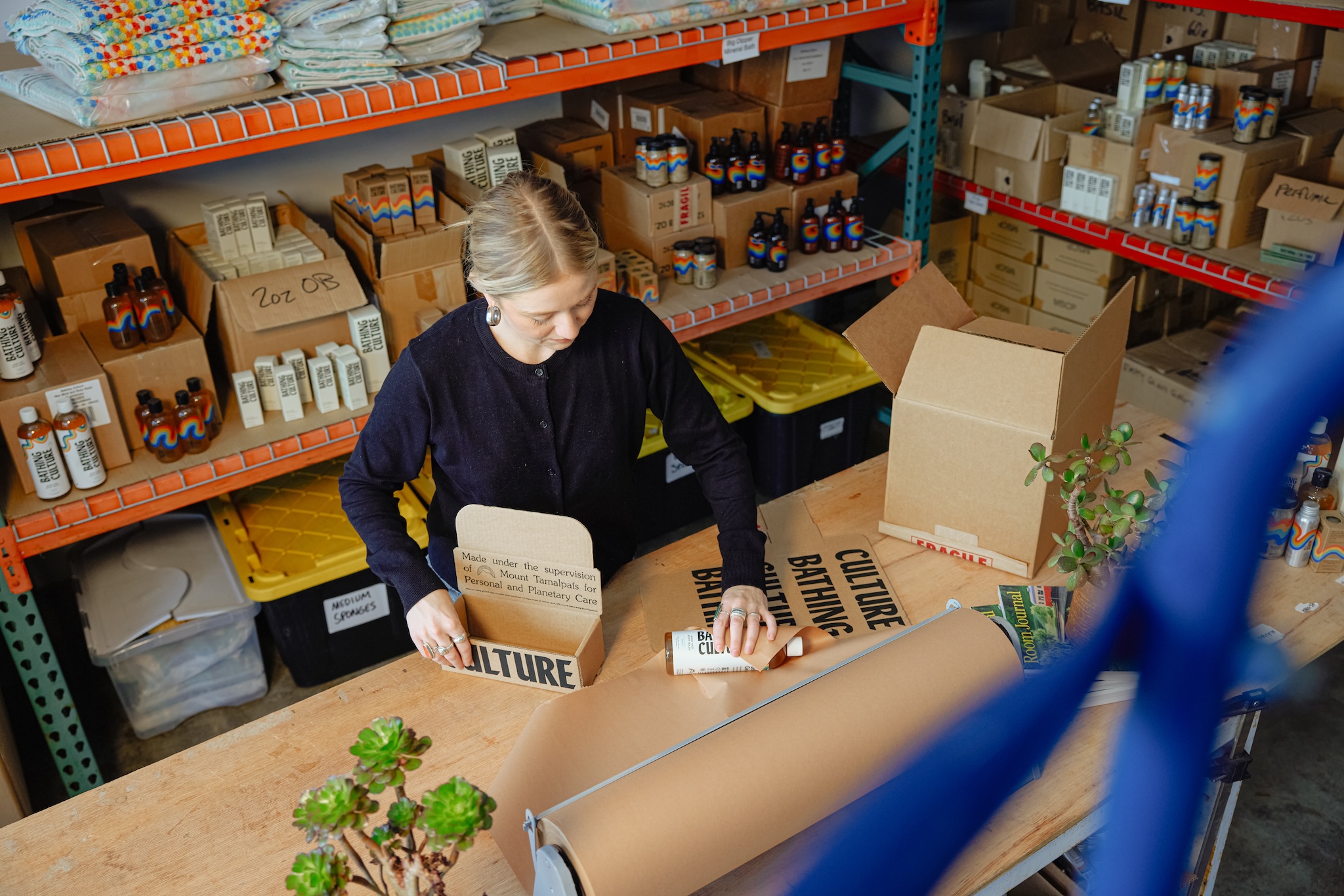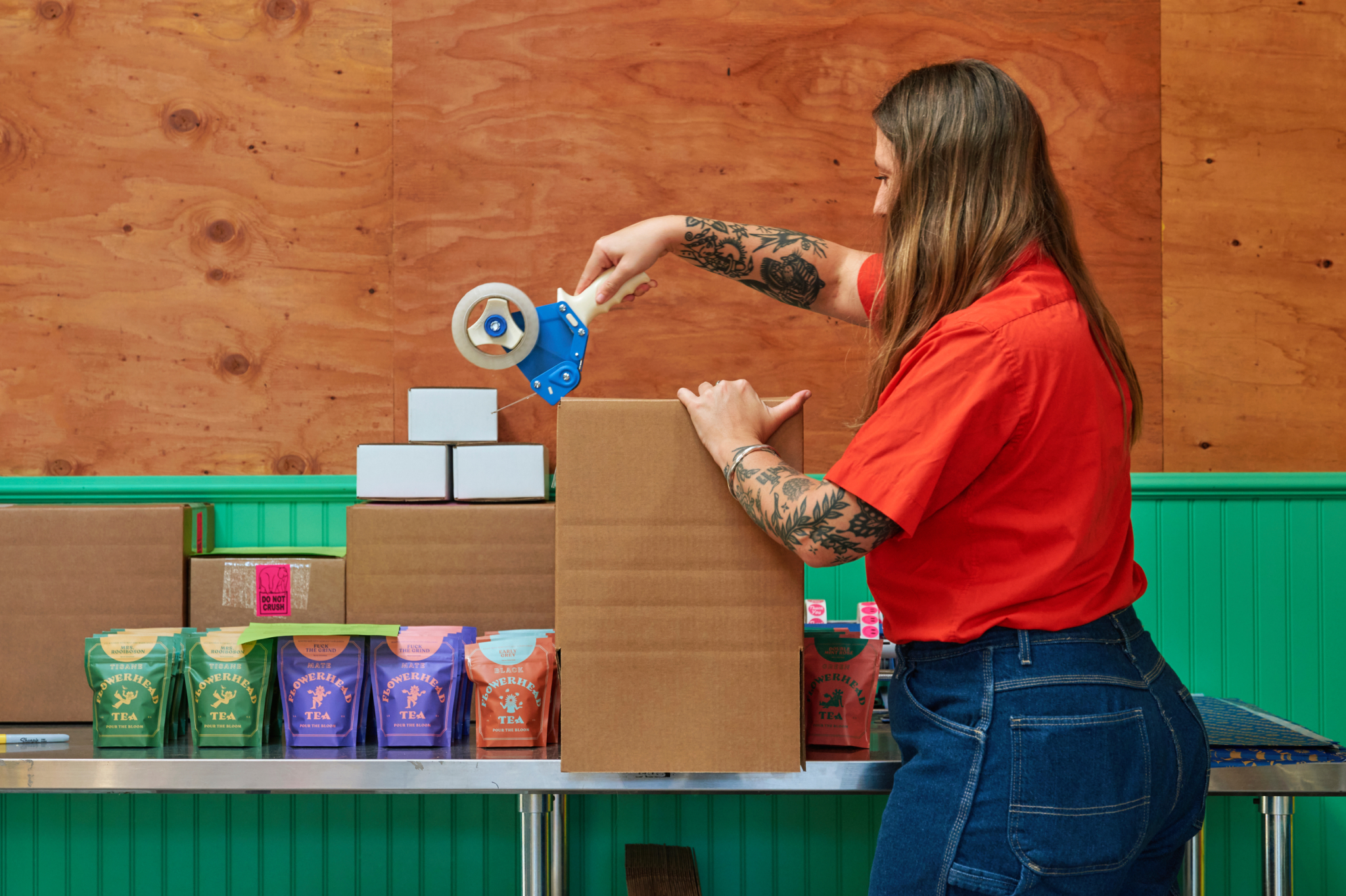

If you play a role in creating a product and getting it into the hands of consumers, then you’re part of the chain—and small changes to the supply chain can create an outsize impact. The supply chain accounts for about 90% of most consumer goods companies’ environmental impact, so if you’re looking for ways to make your company more sustainable—no matter what you sell—the best way to reduce your environmental impact is to look at your logistics.
Supply chain sustainability is as much about reducing waste and lowering your consumption of fossil fuels as it is about social progress. This includes every step of your production process, from where you procure your raw materials to who transports your goods.
Below, we’ll dive deeper into what a sustainable supply chain looks like, why it’s important (and good for business!), and steps you can take to decrease your own environmental footprint.
What is supply chain sustainability?
Let’s start by differentiating between supply chain management—something you’re likely already doing—and supply chain sustainability. Supply chain management is about your sources, producers, and profits: making sure that they’re working quickly and reliably, at a price that aligns with your budget.
Supply chain sustainability takes that management a step further. This means looking at your supply chain practices to see how they’re impacting the physical world (like energy consumption, water usage, and deforestation) and the people around you (ensuring fair labor practices and basic human rights).
What are the business benefits of sustainable practices?
Supply chain sustainability is beneficial to society and the planet, but you may be surprised by how it benefits your business as well. Here, we break it down into three sections.
Planet: We have only one planet, and we all have a part to play in preserving it. By reducing emissions and waste and lowering your resource consumption, you’re contributing to a better, safer home for the next generation.
People: Employees you work with every day are more likely to stay for the long haul if your business aligns with their personal values. According to a 2022 ESG study by Oracle and Savanta, 83% of those surveyed said they’re more willing to work for organizations that clearly demonstrate progress on environmental and social issues.
Profits: While it takes time, effort, and energy to make changes to your supply chain, running a sustainable business can really excite your customers. According to a McKinsey study, 80% of consumers surveyed say that they pay more attention to sustainable products, and over 60% are willing to pay more for them. If you’re looking to entice Gen-Z, Forrester reported that 39% of adults in the US aged 18 to 24 look for energy certifications when shopping and 49% of online youth ages 12 to 17 are worried about the impact of climate change.
Implementing sustainable practices—and being transparent about them in marketing materials and on packaging—is a great way to attract a new audience. As you start to set emissions goals and work with your suppliers and partners to increase sustainability, you may even notice a decrease in energy costs too.
How to make your supply chain more sustainable
To make your supply chain more sustainable, you first need to know what you can improve upon. Forrester created a useful framework to audit your supply chain for sustainability practices.
- Procurement: How much water, energy, and materials are you using?
- Operations: Are there operational processes that could reduce resource usage?
- Retirement: Are you doing anything to reduce excess waste, like upcycling, reusing materials, or doing buy-back programs?
- Data and communications: How are you communicating your sustainability goals with your partners, stakeholders, and customers?
Once you are familiar with your current practices, including the practices of all your suppliers, set social and environmental goals that you all want to reach together. You can choose a member of each team to be a sustainability officer who ensures that goals are disseminated throughout your supply chain and checks in periodically to make sure everyone is on track.
Not sure what sort of goals to set? Here are some changes you can make toward a more sustainable business model:
- Reduce emissions: To cut down on gas emissions, place one large order for supplies instead of many small ones. You can also try to work with local suppliers so that your materials don’t need to be flown around the world or driven across the country. If you do employ drivers, prioritize electric vehicles or hybrids.
- Choose renewable energy resources: Use solar panels at your office (and work with vendors who do the same). Tax credits for solar panels can help mitigate the costs of installation.
- Select greener materials: Make an effort to use recycled materials or switch to renewable ones like cork or bamboo.
- Better packaging: Switch to sustainable packaging materials, like recycled paper or plastic. There are even biodegradable plastics made from cornstarch or seaweed. You can also cut down on unnecessary plastic wherever possible.
- Make use of returned items: Keep returned goods out of landfills by remarketing them as soon as they come in. (According to IBM, the US loses $309 billion in value of returned goods to retailers every year.)
- Create a buy-back program: Buy back used items from your shoppers and resell them at a lower price. This way, your products get a longer life and your shoppers can score great deals.
- Set standards for working hours: Put a cap on hours and set a wage minimum for your employees and suppliers. This is an important first step to make sure everyone in your supply chain is treated fairly and ethically.
- Educate your staff: Increase education about sustainability within your company with outside certifications, guest speakers or partners, or reading materials. Training your employees about the importance of sustainability can go a long way to ensuring that they are as dedicated to and knowledgeable about the cause as you are.
If you’re looking for some inspiration, there are many Faire brands making strides toward sustainability every day.
- Essence of Life Organics produces 100% biodegradable, plastic-free, zero-waste products.
- True Botanicals, which sources its skincare ingredients from regenerative farms, has achieved a host of certifications like Made Safe and is part of the Forest Stewardship Council and Environmental Working Group. The team even makes donations to Grow Ahead, an organization that helps farmers transition to regenerative agriculture.
- Bee’s Wrap’s beeswax and cotton wraps replace plastic wrap to cut down on waste and store food sustainably. It’s a B Corp and member of 1% for the Planet, and the company works with organizations to remove plastic from oceans, protect pollinators, and invest in environmental education.
Making your supply chain more sustainable is an impactful change for your business. It means looking beyond your own needs and taking the time to address the big picture. As you roll out new goals and practices, you’ll be joining a league of dedicated companies large and small that are willing to look beyond today’s concerns to make a better tomorrow.




